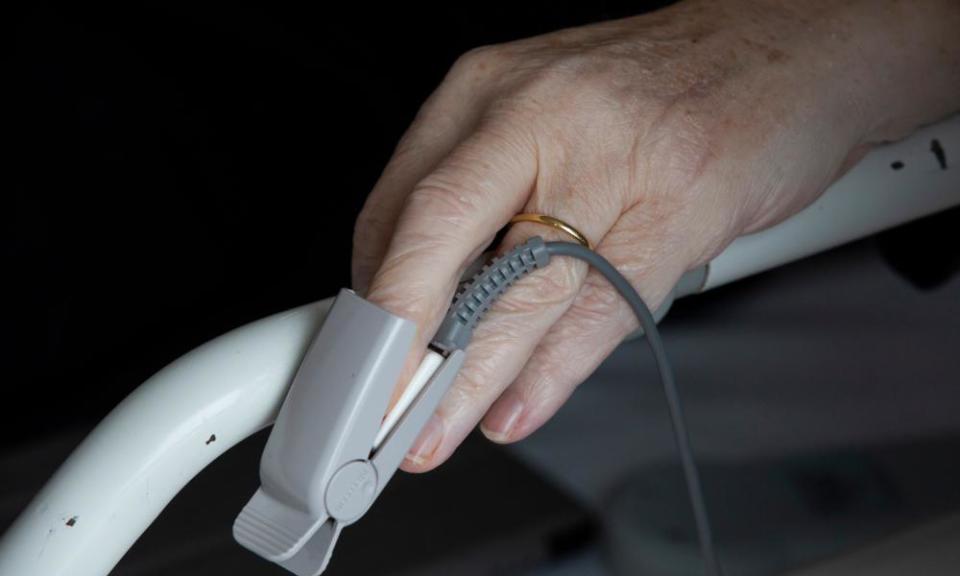Severe Covid infection doubles chances of dying in following year, study finds

Patients who survive severe Covid are more than twice as likely to die over the following year than those who remain uninfected or experience milder virus symptoms, a study says.
The research, published in Frontiers in Medicine, suggests that serious coronavirus infections may significantly damage long-term health, showing the importance of vaccination.
The increased risk of dying was greater for patients under 65, and only 20% of the severe Covid-19 patients who died did so because of typical Covid complications, such as respiratory failure.
Related: What does appearance of Omicron variant mean for the double-vaccinated?
“We conducted a previous study that showed that patients with severe Covid-19 who recovered were at significantly greater risk of being hospitalised in the subsequent six months,” said ProfArch Mainous of the University of Florida, the lead author of the study. “This new study extended that to investigate mortality risk over the next 12 months.”
The researchers tracked the electronic health records of 13,638 patients who underwent a PCR test for Covid within the University of Florida health system, with 178 patients experiencing severe virus symptoms, 246 mild or moderate Covid-19 and the rest testing negative. All patients included in the study recovered from the disease, and the researchers tracked their outcomes.
The study found that patients who were very unwell with coronavirus had a significantly greater chance of dying over the next year, a trend that was particularly notable among those aged under 65. As these deaths frequently occurred long after the initial infection had passed, they may never have been linked to Covid-19 by the patients’ families or doctors, the study found.
Most of the deaths that occurred in severe Covid-19 survivors were not linked with common complications from the disease – 80% of such deaths occurred for a wide variety of reasons that are not typically associated with the virus.
Related: UK launches trial of drug to tackle fatigue in long Covid patients
This suggests that the patients had experienced an overall decline in their health that left them vulnerable. “Since we now know that there is a substantial risk of dying from what would likely be considered to be an unrecognised complication of Covid-19, we need to be even more vigilant in decreasing severe episodes of Covid-19,” said Mainous.
“Taking your chances and hoping for successful treatment in the hospital doesn’t convey the full picture of the impact of Covid-19. Our recommendation at this point is to use preventive measures, such as vaccination, to prevent severe episodes of Covid-19.”
Covid-19 can cause severe symptoms and death for vulnerable people, particularly those with underlying health conditions. Some people also experience long Covid, signs and symptoms that last for a few weeks or months after infection. Symptoms such as fatigue and shortness of breath can linger for months after the infection has passed.

 Yahoo Finance
Yahoo Finance 